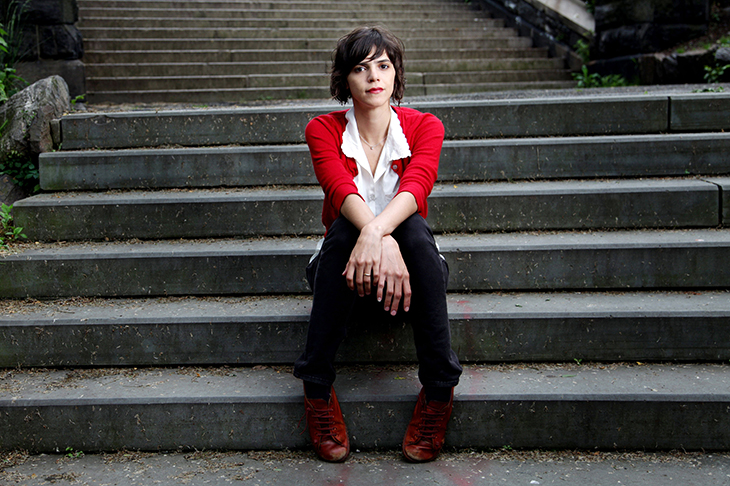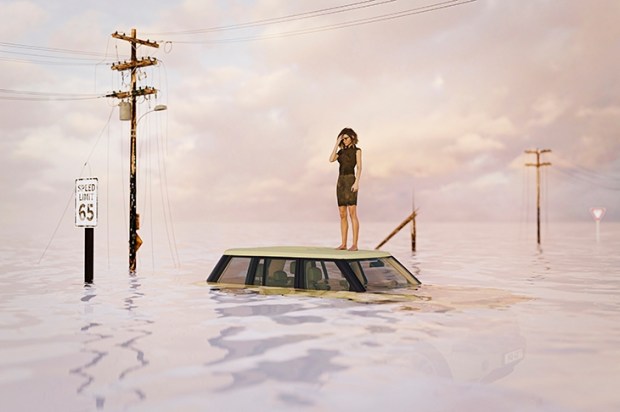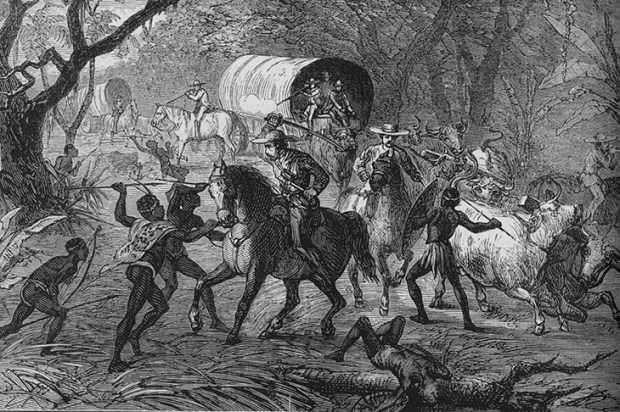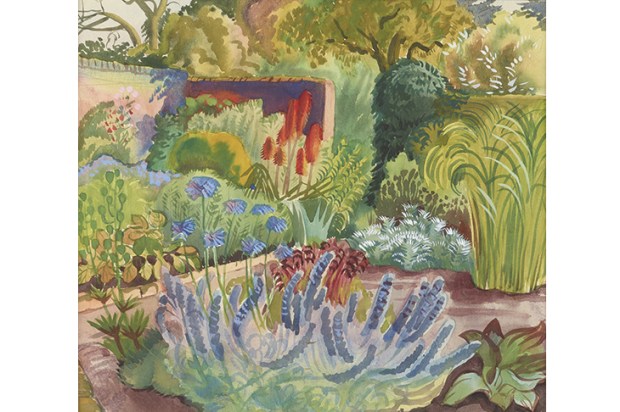Andrew Ridker’s The Altruists (Viking, £20) is a Jewish family saga of academic parents and grown-up offspring. From this rather careworn material he manages to wring a spry comedy of parental failure and romantic misadventure.
Arthur Alter is a terrible father, an ‘emotional cheapskate’ who attempts to bring his estranged children Ethan and Maggie together for a weekend in St Louis, with the ulterior motive of getting his hands on their inheritance. Unsurprisingly, he was excluded from his wife’s will, as he was sleeping with a much younger German medievalist throughout her final illness.
The novel takes us on grimly entertaining excursions into the parents’ back-stories; but the main focus is on the Franzenian showdown in St Louis, a ‘low-rent city abandoned by history and held together with staples and glue’. The ending is a finely written scene of family confrontation, during which Arthur admits to what his children have known all along: ‘I have been needy, reckless, and vain… neglectful and self-centred.’ This is a smart, knowing, tender first novel, full of immaculate comic timing and loquacious chutzpah.
Isabella Hammad’s epic The Parisian (Cape, £14.99) comes with praise from Zadie Smith, who proclaims the author an ‘enormous talent’. It’s a lot to live up to, and by and large Hammad delivers. This is the tale of Midhat Kamal, a young medical student from Nablus who, in 1915, travels from Alexandria to study in Montpellier. There he falls in love with his hosts’ daughter, Jeanette. It’s not long before he leaves the household in disgrace and moves to Paris — and the Sorbonne — before finally returning to Palestine, where he works for his father and is drawn to the oud-playing Fatima. They marry and eventually have four children. But Midhat, in the way of romantic heroes, can’t forget Jeanette.
Hammad traces her protagonist’s emotional journey with great sensitivity, against a backdrop of historical events, including the British involvement in Palestine as the second world war approaches. Torn between two cultures, Midhat grows out of his ideals and becomes mired in midlife dissatisfaction. The Parisian is a vivid, capacious historical novel that nonetheless takes the time to notice tiny details, such as the sound of a piano key — ‘manifold and deep, glassy and warm at the same time’.
In the wake of two recent searing novels about the Troubles — Anna Burns’s Milkman and David Keenan’s For the Good Times — comes Jenny McCartney’s The Ghost Factory (Fourth Estate, £12.99). With the action ricocheting between London and Belfast, this is a quieter, more humane take on growing up amid bombings and factional unrest.
Wee Jacky lives in a strikingly evoked Belfast (‘my beloved city, baptised in tea… sprinkled with vinegar-sodden chips and cigarette butts’) until he punches a loyalist paramilitary in a bar. A punishment beating follows and he’s forced to flee to London to start a new life. There he finds the world is ‘bigger than Northern Ireland… with its drizzle and cramped pubs and that dank little feud that has flickered for centuries like a soggy peat fire’. It’s only when his best friend Titch dies that Jacky returns to Belfast to settle old scores. A lyrical, slyly funny novel about an endlessly complex conflict, it is a valuable addition to Troubles literature.
Helen Mort’s first collection of poetry won the Eric Gregory Award when she was just 22. Black Car Burning (Chatto, £14.99) is an impressive, Sheffield-set tale which follows the lives of a polyamorous couple, Alexa and Caron, and an ex-police officer haunted by the Hillsborough disaster. When Caron walks into a climbers’ equipment shop she captivates the androgynous Leigh, who wants to attempt Black Car Burning, a ‘short, tough climb out at the very edge of Stanage’.
As their lives unravel in a divided Britain, where EDL marchers chant ‘We want our country back’, the disparate voices are held together by short passages in which the landscape itself is given voice. These act as welcome poetic rocks in the stream of the narrative, the anthropomorphised places watching over their hapless human inhabitants. There are startling reminders of Mort’s considerable poetic skill — ‘the lovely secrecy of trees, their privacy at twilight’, and the ‘violet heather, the violence of its grip across the moor’.
Lost Children Archive, by the Mexican author Valeria Luiselli (Fourth Estate, £16.99), isn’t strictly a first novel, but it’s her first to be written in English. Out of the five reviewed here it’s the most formally ambitious, most memorable and most accomplished.
Beginning with a road trip from New York to the Mexican border, undertaken by a nameless journalist narrator and her sound-archivist husband, the book charts the disintegration of their marriage, with their two children from previous relationships caught in the middle. While the narrator investigates the ‘more than 80,000 undocumented children from Mexico’, some as young as two, kept in ‘a brutal, semi-secure detention facility’, her husband is on the trail of the displaced Apaches of Arizona.
The narrative itself follows a contrapuntal movement: a road trip and an exodus. With intertextual echoes (of the Odyssey and the literary journeys of Kerouac and Cormac McCarthy), as well as Sebaldian photographs, the novel meditates on documentation and bearing witness, and its opposite — erasure and redaction; and on who and what get lost or preserved, either accidentally or deliberately.
Got something to add? Join the discussion and comment below.
Get 10 issues for just $10
Subscribe to The Spectator Australia today for the next 10 magazine issues, plus full online access, for just $10.
You might disagree with half of it, but you’ll enjoy reading all of it. Try your first month for free, then just $2 a week for the remainder of your first year.














Comments
Don't miss out
Join the conversation with other Spectator Australia readers. Subscribe to leave a comment.
SUBSCRIBEAlready a subscriber? Log in